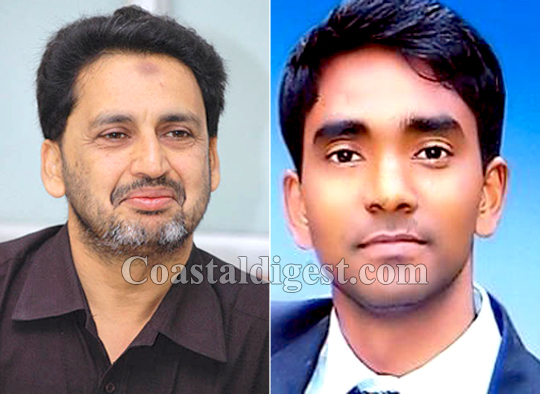Mangaluru, Jul 21: A B Ibrahim, who served the Dakshina Kannada district as its Deputy Commissioner for over two-and-a-half years, has been transferred with immediate effect.

Mr Ibrahim has been posted as the Commissioner for Transport and Road Safety, Bengaluru in the existing vacancy relieving Dr Ramegowda, IAS, of concurrent charge.
Leaving with satisfaction
Responding to the fresh transfer order, Mr Ibrahim said that he is leaving the coastal district with an amount of satisfaction having been able to accomplish some of the tasks he intended to perform.
During his tenure, he said, in order to decongest Mangaluru city, he initiated measures to shift the district office complex and the bus stand outside the city. “I am happy that the process of shifting district office is on,” he said.
All the more, Mr. Ibrahim is happy to be recognised as a “people's DC” for his simple style of functioning and being accessible to the general public in the district.
He took the initiative of providing basic amenities to the Male Kudiya tribe in Banjarumale in Belthangady taluk, who were completely cut off from the mainstream for decades now.
Mr. Ibrahim, being the Chairman of the Dr. K. Shivaram Karanth Pilikula Nisargadhama Society, conceived the idea of holding monthly festivals depending upon the season at the park to make it one of the major tourist attractions.
The initiative has been yielding results with more tourists visiting the nisargadhama every day and the pilikula being recognised across the state.
Though he is leaving the district without any major bad remarks, he said being a highly communally sensitive district, working in Dakshina Kannada was itself a major challenge. “However, I am happy that I have done justice to all without any discrimination,” he said.
He had made every effort to restore the glory of Dakshina Kannada as a major education and tourist hub.




Comments
We Miss u Lot Sir,
The Value of a People comes to know when we Miss Them.
i Salute You Sir.
We Miss u Lot Sir,
The Value of a People comes to know when we Miss Them.
i Salute You Sir...
We Miss U Sir,
The value of a thing comes to know when we Miss That.
I Salute u Sir ...
The great human being and wonderful personality. we miss you sir.
Sincerely hope the new d.c is not a sycophant of any parties and us just line the previous d.c
Dear A.B. Don't worry...u did lot to improve Mlr....am sure wherever u go u vil do the best....no one can stop a sincere officer...n u r not like some cowardice officers to suicide bowing the pressure. I know u vl make them to feel the heat.
You will be in our heart forever Ibrabim sir, because of your honesty, determination & gentle character. May God bless you and your family.
We will definitely miss AB Ibrahim sir, who was one of the most efficient and honest DCs Mangaluru has ever witnessed. Whenever we met him on various issues we got positive response. Hope the young blood will be like his predecessor. Congrats to both
Welcome sir. we need young officers like you.
Add new comment